A Trout’s Tale
The following spiritual lesson is taken from the The Ferryman’s Dream; in this interchange Vesudeva, Nestor and Emil are discussing learning from the most basic of human activities: cooking trout for dinner. Here Vesudeva, as Teacher, shows Emil and Nestor that the greatest truths often emerge within the context of ordinary, every day life. And just as there was a plan to get river trout to their dinner table, there might be a higher plan for each person’s life.
* *
And as the evening arrived, a cool breeze blew across the waters and Vesudeva, Nestor and Emil warmed them selves by the outdoor fire. Each was holding a stick across the flames which had been scoured through a freshly caught and cleaned river trout.
Having been accustomed to others cooking, Emil felt awkward in this task and Vesudeva showed Emil how to hold the trout over a part of the fire that burned evenly, with low, strong flames. When it was time to turn the trout, Vesudeva nodded to Emil. Happily Vesudeva chatted about the passengers he met earlier that day and on the final run. Keeping a careful eye on his and Emil’s fish turning and indicating as required.
When the cooking was complete, all were seated at the table waiting for the trout to cool and Vesudeva questioned Emil. “So you have come to learn about our teaching and to share it in the newspaper?”
Emil replied, “Yes. I hope that by spending time with you and Nestor, I might learn what he finds so useful in what you speak about. Coincidently, our newspaper is doing a series on New Age Teachers and I thought, with your permission I would write an article to share with others. What do you say about this?”
Vesudeva smiled and indicated, “You are here, are you not? That is my answer.”
For an instant, this reply stopped Emil. Not fully understanding if this was a yes or a no. Cautiously Emil continued, “Since you have agreed, when will the lessons start?”
Vesudeva replied, “The lessons began the moment you decided to join us and learn. From that moment you have been thinking, wondering what kind of teaching would appeal to your old friend enough to take him from the tavern life. Similarly from the moment you arrived here, you have been observing, considering and evaluating. Is this not learning?”
Somewhat confused, Emil offered, “But this is not learning as I know it. This is not what I have anticipated. Where is the classroom instruction?”
Vesudeva answered, “Travelers expect to learn only in a formal, classroom situation. Yet the Teaching rarely presents itself within this form. It is more organic. Life is the great classroom. Everything around us interacts with us and teaches on a multitude of levels. People forget this and most expect that learning will occur in a form that is familiar. A classroom, with a fixed period and a teacher who is the source of knowledge. Or a church, synagogue, or mosque with a designated leader. Most students are used to waiting for something important to happen or be said.”
“Yet in our way of thinking and learning, something important is always happening. However, to understand and comprehend, the student must change the way they look at things. Often to view reality in this manner it is not a matter of adding but removing something. Preconceived ideas and attitudes about learning must be removed, so something else might come forward -higher consciousness.”
Seeing the confusion in Emil’s face, Vesudeva paused for a moment. Inwardly, Vesudeva smiled to himself and continued, “Since you are our guest, it is unfair to make you feel uncomfortable your first night with us. Yet this unease is a good sign. It shows you are listening, thinking and trying to learn.”
“Tonight I will offer a lesson in a more standard fashion. Consider this trout that is cooling on your plate. Who created this fish and for what purpose? Had the fish ever considered that one day it would become an evening meal? Or while spawning, did this trout consider that it might give birth to hundreds of others? Does this fish have consciousness or awareness of its life purpose? If so, where will this conscious awareness go after the trout’s flesh fills your stomach? Where did Nestor learn to fish? How did his ancestors learn this skill? Where did all this trout knowledge originate? Also how did humanity acquire the tools necessary to cook and clean this creature?”
“Just as there was a plan to bring this fish to our dinner plate that involved the interplay of many across thousands of years, what of the other thousands of trout that do not make it to this table? What part do they play in the continued life of the river valley? Different philosophies and world views explain this phenomenon. Science indicates these fish are part of a larger eco-system. More are born each year than are required to help the species survive. Some will be eaten by larger fish when they are minnows. Others will mature to have young of their own and countless others will pass on due to disease and the fisherman’s hook.”
“Some people see in this multi-level activity of the trout confusion, happenstance, or survival of the fittest. Depending upon individual preference it is either a scientific, religious or philosophical view. Yet no matter the individual view of the onlooker a fish reality exists. For surely, this trout lived, swam in the river and its passing will provide sustenance to another.”
“In all this activity, is there not a plan of sorts? Consider who or what created the river valley, this fire, the learned capacity to catch dinner, so you might live another day to consider this question or dismiss it as unimportant. Yet whatever you do with this opportunity to learn, is this learning impacted by either Nestor’s view or my own? And does it really matter what we think, believe or experience in relation to this? Is different energy engendered when many people believe the same thing?”
Vesudeva paused, looked directly at Emil and offered, “And if it doesn’t really matter, these questions, would you be here to learn something about all of this from me? One last thought before you bite into that fine trout which Nestor skillfully caught and cleaned. It has almost completely cooled down from the fire, ready for eating. Consider this, if there is a plan of sorts for this fish, would there not be a plan for higher life forms like people and you? If so, what then would that plan be? Also, in relation to this plan, what might be your individual responsibility?”
_______
Check-out my two books: Sufism for Western Seekers: Path of the Spiritual Traveler in Everyday Life and The Ferryman’s Dream. Both books are available through Amazon.com or local bookstore.
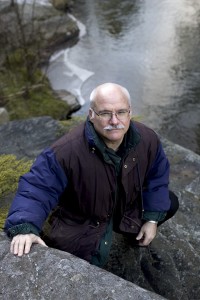
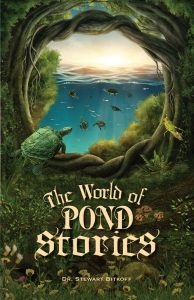


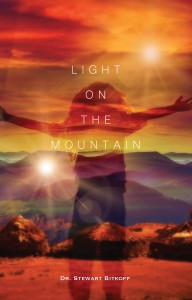
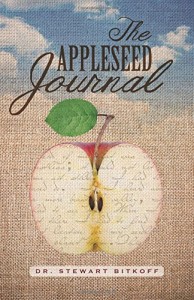
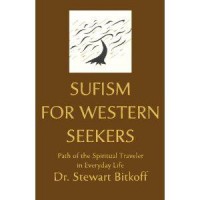

{ 0 comments… add one now }